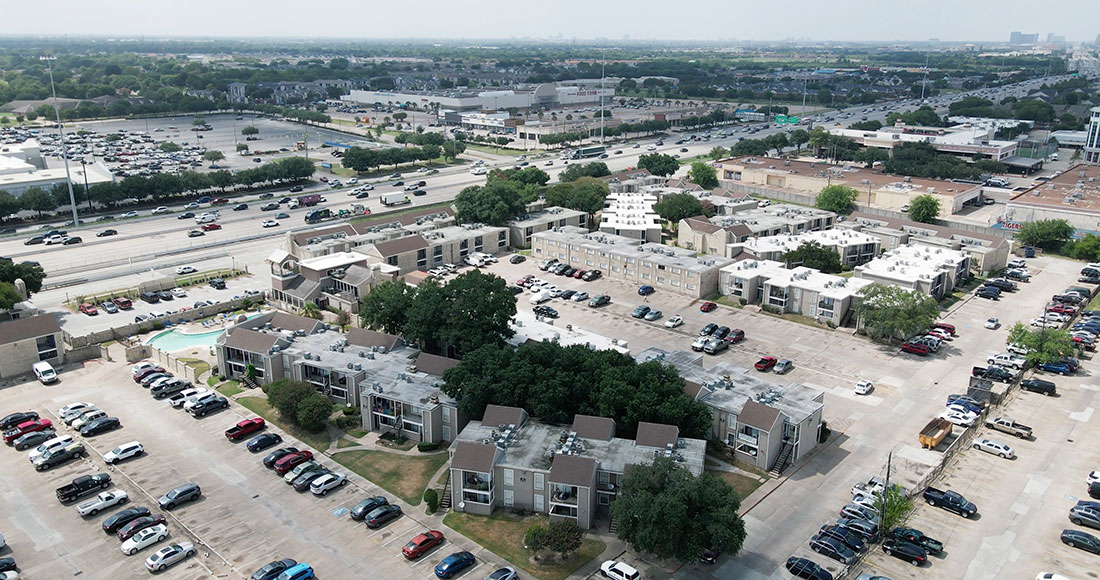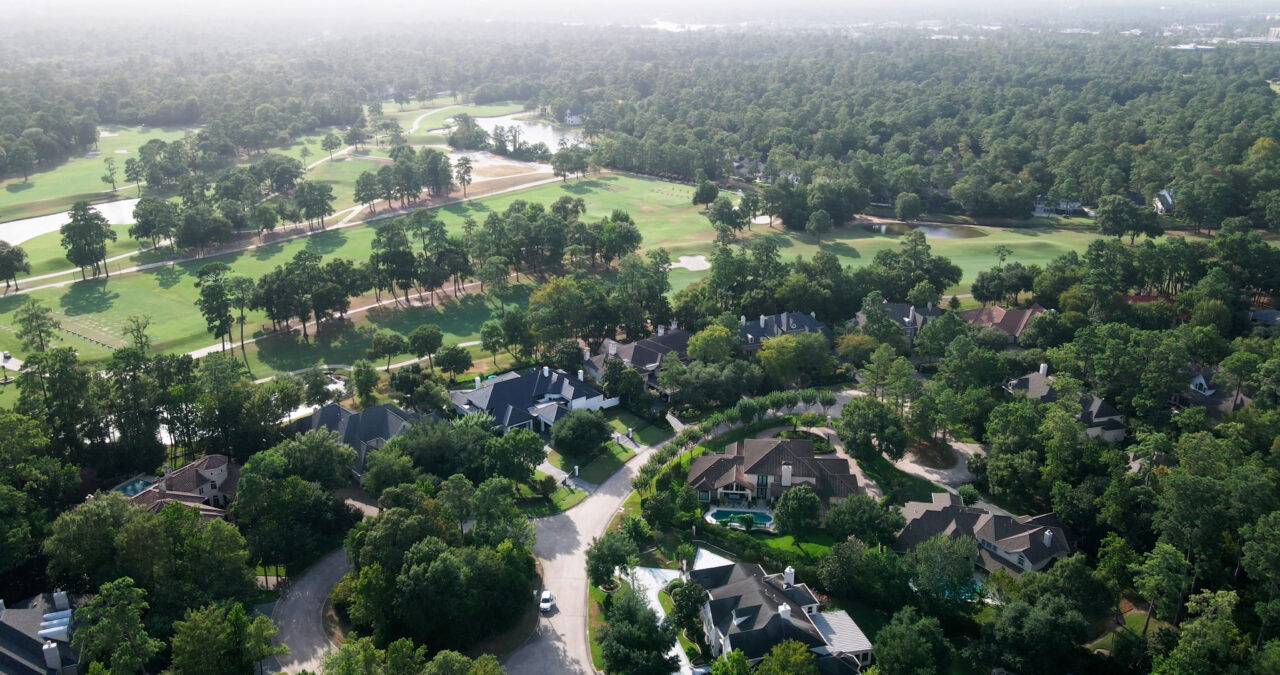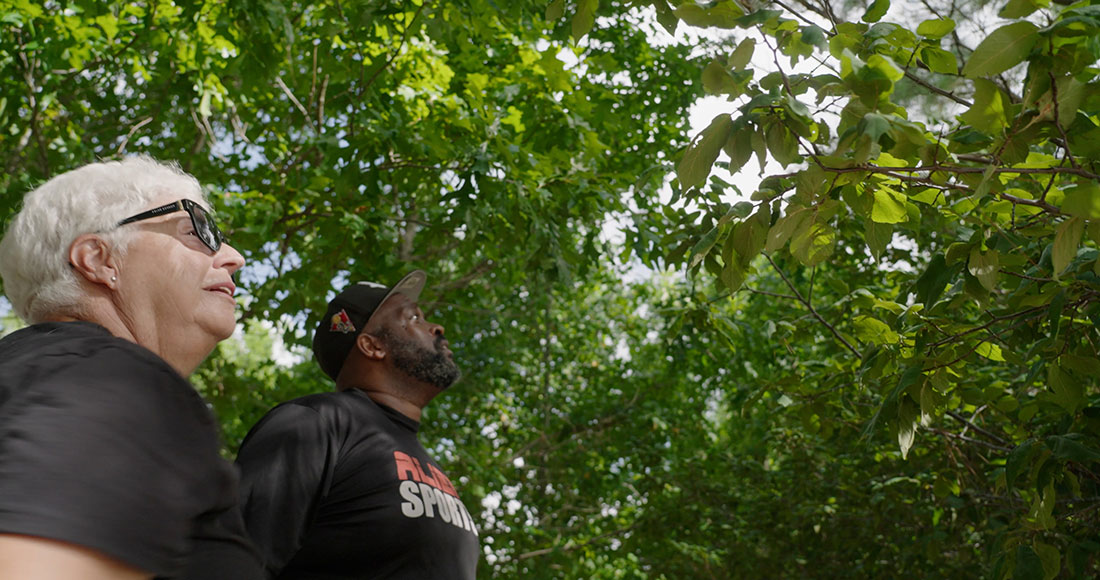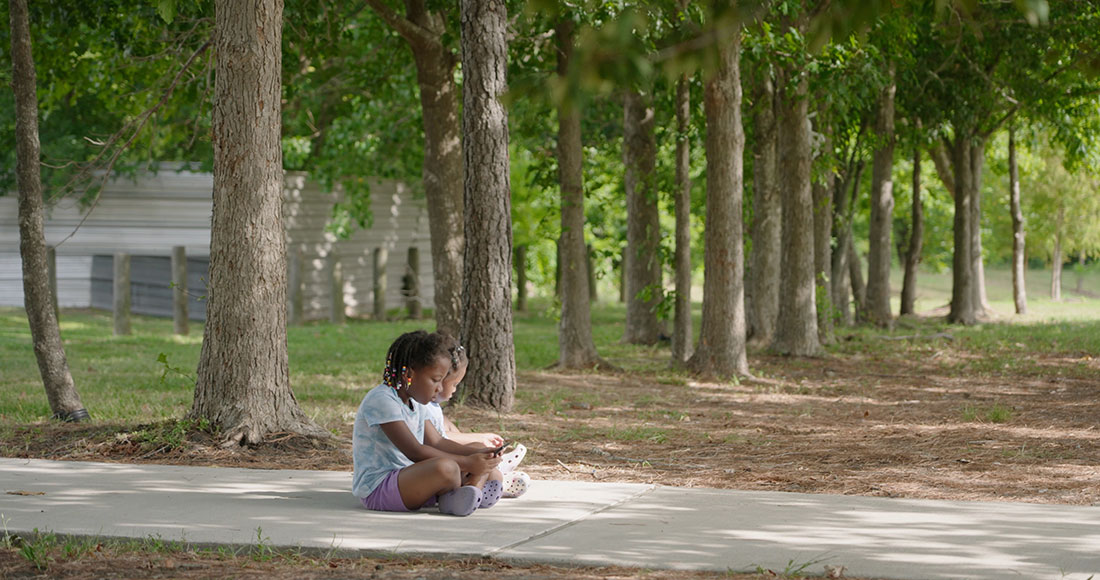IN THE HEART OF TEXAS, where heat reigns supreme, Houston is a testament to the complexities of climate change. As temperatures steadily climb across the globe, Houstonians find themselves confronting a uniquely hazardous situation made worse by urban sprawl and the proliferation of impervious surfaces. With each passing year, the city experiences an alarming surge in extreme heat days, a trend projected to double by 2050, according to recent studies. In the summer of 2022, Houston shattered records with more than 15 days surpassing the 100-degree mark, offering a glimpse into the city’s increasingly precarious future.
The expansion of Houston’s urban landscape, which has surged by 63% over two decades, further compounds this challenge. As pavement and buildings continue to encroach upon the cityscape, the urban heat island effect is intensifying, trapping heat and exacerbating the already-oppressive climate.


Photo Credit: Lucie McCormick / American Forests
Amidst Houston’s concrete sprawl, trees emerge as crucial allies against the relentless heat. With their leafy canopies, trees reduce surrounding air temperatures by up to 10 degrees Fahrenheit. Directly in their shade, temperatures can be as much as 45 degrees cooler than in nearby unshaded areas, providing a much-needed reprieve from the city’s scorching heat.
Barbara Quattro has seen her southwest Houston neighborhood, Alief, change drastically over the last 40 years due to urban sprawl, and is on a mission to re-tree the area to reduce the heat island effect and gain a better quality of life. As chairperson of the Alief Super Neighborhood Council, she leads a team of volunteers that has planted thousands of trees in Alief to provide shade for the predominately minority community. They work closely with city representatives to secure funding and support.
Advocates for increasing trees in Houston include Priya Zachariah, former chief resilience and sustainability officer for the City of Houston. She was integral in securing Houston’s pledge to plant 4.6 million new trees by 2030 as a part of 1t.org US, an initiative with the goal of conserving, restoring and growing 1 trillion trees worldwide by 2030. With support from Salesforce, American Forests supported Houston in becoming the largest city to date to make a 1t.org US pledge.

Photo Credit: Lucie McCormick / American Forests
While many are focused on the big picture of rising temperatures in Houston, it’s people like Kevin Kebede, founder and director of Heads-Up Houston, who understand the stakes on a personal level. Heads-Up Houston provides afterschool programming, recreational sports activities and pre-employment classes for local youth. Kebede and his colleagues go to great lengths to ensure the safety of their youth when it comes to heat and outdoor recreation. Each spring, the organization’s staff tours and scores city parks based on access to shade and water to determine where they will take their summer camp students for field trips. Kebede notes that this gets harder every year — in fast-growing Houston, where concrete and asphalt increasingly overtake neighborhoods, finding shaded green space can be tough. Kebede and Quattro are working together to advocate for trees in the community. And, it’s voices like these that we need to help propel the Tree Equity movement so that all people can benefit from the life-saving, heat-reducing benefits of trees.

Photo Credit: Lucie McCormick / American Forests
“To think that there would be over 4 million trees planted in Houston by 2030, that’s like a dream come true…It’s being heard that it is a priority and a need for us to plant trees for the quality of life, not only for us right now, but ultimately, it’s an investment in future generations.”
— Kevin Kebede, Founder and director, Heads-Up Houston
Adrienne Bermingham writes from New York and serves as American Forests’ director of partner communications.